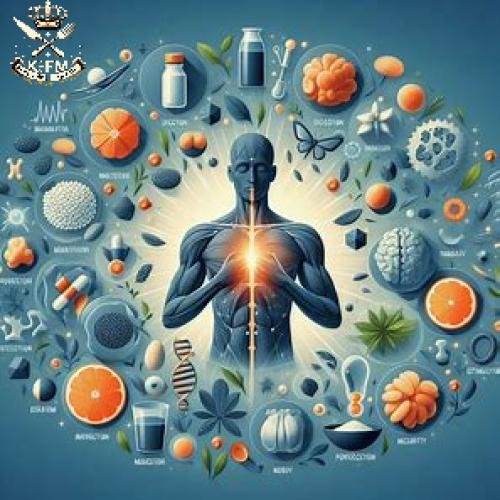Vegetables are an essential part of a healthy diet and play a crucial role in enhancing overall health and preventing diseases. Among the vegetables that have received significant attention in scientific studies, tomatoes stand out as one of the key examples of how vegetables can improve health and fight diseases. In this article, we will explore the importance of tomatoes in the diet and how they contribute to overall health, based on recent studies and scientific research.
Health Benefits of Tomatoes
Scientific studies have long shown the importance of consuming fresh vegetables to maintain human health and prevent diseases. Many research studies suggest that eating vegetables, including tomatoes, is associated with a lower risk of cancer and viral diseases. According to 72 diverse studies conducted on various types of fresh vegetables, it has been confirmed that eating more vegetables reduces the risk of diseases, especially cancer and viral infections. Tomatoes are one of the most widely consumed vegetable crops worldwide, and they play a prominent role in this context. They are rich in Vitamin C, potassium, and antioxidants, which boost immunity, protect the heart, and contribute to overall good health.

Nutritional Composition of Tomatoes
Tomatoes are known for their exceptional nutritional and therapeutic properties, as they contain a variety of beneficial elements that contribute to health enhancement. One of the most notable of these elements is carotenoids, which are the primary source of Vitamin A, or provitamin A. This vitamin plays a role in antioxidant defense and protects cells from cancer, particularly prostate, lung, and stomach cancers. It is also beneficial in treating respiratory diseases and conditions resulting from inflammation. Tomatoes play a vital role in cardiovascular health and contain compounds such as potassium and lycopene, which help in:
- Lowering blood pressure: Potassium helps balance the effects of sodium, contributing to the reduction of blood pressure.
- Lowering bad cholesterol: Lycopene helps reduce the oxidation that damages arteries, thus lowering the risk of arteriosclerosis.
- Preventing blood clots: Some compounds in tomatoes help prevent blood clotting, reducing the risk of heart attacks and strokes.
Eye Health:
Vitamin A found in tomatoes is essential for maintaining eye health. It aids in improving night vision and protects against macular degeneration, one of the leading causes of vision loss in older adults.
Cardiovascular Protection:
- Protection of the heart and blood vessels from diseases.
- Reduction of chronic inflammation in the body.
Vitamin C: Tomatoes contain a good amount of Vitamin C, which is an essential vitamin that strengthens the immune system and helps protect against colds and flu. It also plays a key role in collagen production, a protein responsible for skin elasticity.
Potassium: The potassium in tomatoes helps regulate blood pressure.
Fiber and Lycopene in Tomatoes
Tomatoes are also rich in fiber, especially in the skin, which plays a crucial role in stimulating bowel movement and combating constipation. Fiber helps in the absorption of water and minerals and is associated with reducing the risk of colon cancer.
Another important compound found in tomatoes is lycopene, the substance responsible for the red or orange color of tomatoes. Scientifically, it has been proven that lycopene has antioxidant properties and reduces the risk of oral, laryngeal, and esophageal cancers. Lycopene is not only a powerful antioxidant but also acts as a natural sunscreen. It helps protect the skin from UV rays, which cause sunburn and accelerate skin aging. Studies have also shown that people who consume large amounts of tomatoes and tomato-derived foods are less likely to develop oral leukoplakia, an abnormal condition that can precede the onset of cancer.

How to Consume Tomatoes for Maximum Benefit
To fully benefit from the advantages of tomatoes, it is recommended to consume them fresh and unpeeled, as the skin, seeds, oil, and juice contain valuable nutrients. The best way to enjoy tomatoes is by incorporating them into a fresh salad, allowing you to benefit from all their nutritional components.
How to Store Tomatoes
Optimal Temperature: Tomatoes should be stored at room temperature (around 20-25°C), as they are negatively affected if stored in the fridge, losing flavor and texture. However, if the tomatoes are fully ripe and you need to store them for a longer period, you can refrigerate them for a short time.
Storage in a Dark and Dry Place: Tomatoes should be kept away from direct light and excessive heat. It's best to place them in a basket or an open container that allows airflow.
Storage After Cutting: If you have cut the tomatoes, place the pieces in an airtight container in the fridge and use them within two to three days.
Cooking Methods
Grilled Tomatoes: Grilling tomatoes is an excellent way to prepare them, as the heat increases the concentration of beneficial compounds like lycopene. You can grill tomatoes on a barbecue or in the oven with a little oil and salt for a rich flavor.
Roasted Tomatoes: Roasting tomatoes in the oven is another option that enhances their taste and retains their nutritional value. You can add herbs and spices such as thyme and basil for a delicious flavor.
Used in Sauces: Tomatoes are a key ingredient in many famous sauces such as Italian tomato sauce, marinara sauce, and pesto sauce. Cooking tomatoes improves the body’s ability to absorb their nutrients.
Potential Risks
Tomato Allergy: Some individuals may suffer from an allergy to tomatoes, which could cause symptoms such as itching, swelling of the mouth, or skin rashes. If you suspect you have a tomato allergy, it is advisable to consult a doctor before consuming them.
Impact on Dental Health: Tomatoes contain natural acids that can negatively affect dental health if consumed excessively. It is recommended to brush your teeth after eating tomatoes to prevent enamel erosion.
Impact on Kidney Stone Sufferers: People with kidney stones may need to limit the consumption of foods high in oxalates, such as tomatoes, as these compounds could contribute to the formation of new stones.
Frequently Asked Questions
Can people with kidney stones eat tomatoes? People with kidney stones can consume tomatoes in moderation, but they should avoid overeating as tomatoes contain oxalates, which may contribute to the formation of stones.
What is the recommended daily amount of tomatoes to benefit from their health advantages? Eating one to two tomatoes daily provides the multiple health benefits tomatoes offer. It's recommended to vary the consumption between fresh and cooked tomatoes.
Are tomatoes suitable for a diabetic diet? Yes, tomatoes are suitable for diabetics due to their low sugar and high fiber content, which helps regulate blood sugar levels.
What are the best ways to prepare tomatoes for maximum nutritional benefit? Tomatoes can be consumed either fresh or cooked. It is advised to eat them with their skin and seeds to get the full nutritional benefits.
Do tomatoes have a positive effect on skin health? Yes, tomatoes contain vitamin C and lycopene, both of which help improve skin health and protect it from UV damage.
Is it better to eat tomatoes raw or cooked? It is beneficial to eat tomatoes raw at times for vitamin C, while cooked tomatoes can increase the concentration of lycopene, which is more beneficial for heart health.
Conclusion: Tomatoes are not just delicious and appetizing vegetables; they are also a rich source of nutrients that enhance health and prevent diseases. With their content of carotenoids, fiber, and lycopene, tomatoes are a valuable addition to your daily diet. To maximize the benefits of tomatoes, it is best to consume them fresh in various forms and enjoy their health benefits.




















